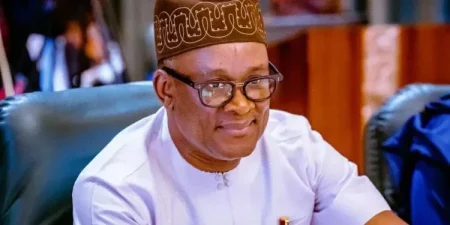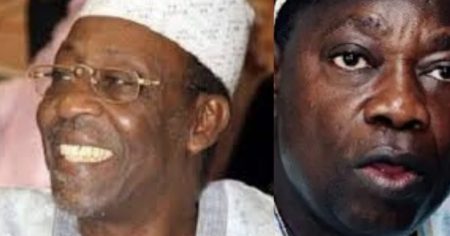Paragraph 1: Initial Challenges and Macroeconomic Reforms
President Bola Tinubu’s initial economic reforms, focused on monetary orthodoxy and fiscal responsibility, presented significant challenges to Nigeria’s productive sector. High energy costs, exacerbated by subsidy removal, and elevated interest rates resulting from a tight monetary policy created a difficult operating environment for industries, particularly manufacturing. This sector, heavily reliant on imported raw materials and energy-intensive operations, felt the immediate impact of exchange rate fluctuations and rising energy prices. The World Bank acknowledged these initial difficulties, noting a contraction in the manufacturing sector and the exit of several multinational corporations. However, these reforms were deemed necessary to address underlying macroeconomic imbalances and lay the foundation for sustainable growth.
Paragraph 2: Positive Impacts of Reforms and Investment Drive
Despite the initial challenges, President Tinubu’s reforms began to yield positive results. The World Bank reported a significant reduction in Nigeria’s fiscal deficit and stabilization in the oil sector. The African Development Bank also praised the reforms for contributing to GDP growth across three quarters. Simultaneously, President Tinubu embarked on an aggressive investment drive, emphasizing his commitment to industrialization and a "Nigeria First" approach. He undertook numerous international trips to attract foreign direct investment, securing billions of dollars in pledged investments, although the realization of these investments remained a key concern. The CBN reported increased business activity, particularly in the industry and agriculture sectors, signaling a positive shift in the economic landscape.
Paragraph 3: Sector-Specific Performance and Challenges
While macroeconomic indicators improved, the manufacturing sector continued to face headwinds. The National Bureau of Statistics reported a decline in the sector’s growth rate and its contribution to GDP. The Manufacturers Association of Nigeria (MAN) echoed these concerns, highlighting the exodus of manufacturers to neighboring countries due to the challenging business environment. High interest rates, maintained by the Central Bank of Nigeria to combat inflation, constrained access to credit for businesses, further limiting their expansion potential. The energy crisis, characterized by insufficient power supply and soaring tariffs, forced manufacturers to rely heavily on expensive alternative energy sources, adding to their operational costs.
Paragraph 4: Addressing Challenges and Supporting Industries
Stakeholders emphasized the need for targeted government intervention to support struggling industries. Experts suggested focusing on structural reforms in the power and logistics sectors to reduce operational bottlenecks. Calls were made for tariff concessions on critical manufacturing inputs and increased capitalization of development finance institutions to provide manufacturers with access to affordable financing. The forex forward-related dispute, which impacted manufacturers’ access to foreign exchange, remained unresolved, requiring government intervention. Concerns also arose regarding the awarding of lucrative contracts to foreign companies, highlighting the need to prioritize local content and empower Nigerian manufacturers.
Paragraph 5: Trade Performance and Policy Initiatives
Nigeria’s foreign trade saw overall growth under the Tinubu administration, with a significant trade surplus driven by increased exports, particularly in non-oil sectors like manufacturing, agriculture, and solid minerals. The Nigerian Export Promotion Council (NEPC) reported a substantial rise in non-oil export value. However, exporters continued to face challenges related to port infrastructure, increasing taxation, and the non-competitiveness of Nigerian goods in international markets. The controversial four percent Free-on-Board levy imposed by the Nigerian Customs Service drew criticism from the organized private sector, as did the taxation of Export Expansion Grants, which disincentivized exporters. Positively, the administration achieved milestones in facilitating digital trade protocols under the African Continental Free Trade Area and implementing targeted policies like duty waivers on pharmaceutical inputs.
Paragraph 6: Focus on MSMEs and the Extractive Sector
The Tinubu administration’s efforts to support Micro, Small, and Medium-Sized Enterprises (MSMEs) included various credit facilitation schemes and intervention funds. However, access to credit remained a significant challenge for small businesses, which also grappled with inflationary pressures and a shrinking customer base. The effectiveness of government support programs was questioned by stakeholders. In the extractive sector, the government attracted significant investments in processing projects, particularly in lithium, and reported increased revenue due to sectoral reforms. However, illegal mining and conflicts continued to plague the sector, requiring ongoing attention. Overall, stakeholders urged the Tinubu administration to prioritize structural reforms, engage more actively with industry players, and adopt a more practical approach to supporting local industries to ensure sustainable economic growth in the coming years.














